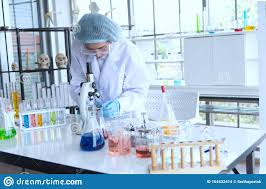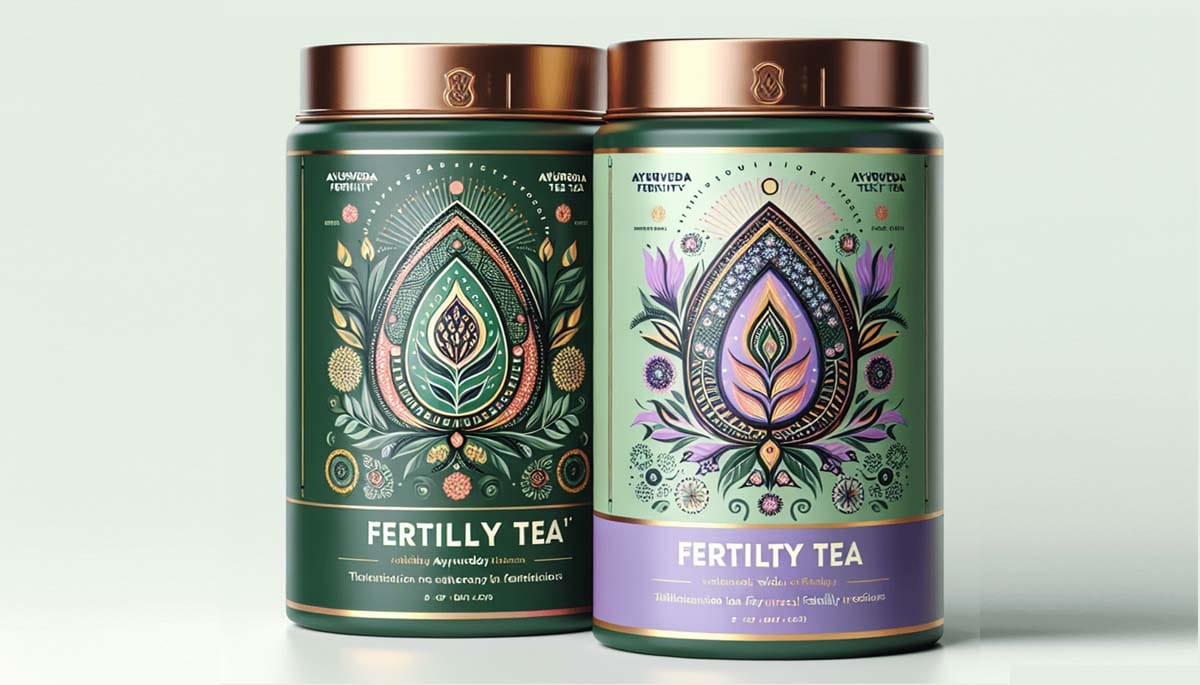Services
Fertility Tea-1and Fertility Tea-2
Fertility Tea-1and Fertility Tea-2
Introduction
Ayurvedic approaches to fertility emphasize the balance of mind, body, and spirit using natural remedies. This holistic approach often incorporates dietary changes, yoga, meditation, and herbal treatments to create an optimal environment for conception.
In this article, we explore two popular herbal fertility teas: Fertility Tea-1 and Fertility Tea-2. These teas are designed to support reproductive health and enhance fertility in women and men respectively. By examining their key ingredients and potential benefits, you can gain insights into how these natural remedies might fit into your journey towards improved reproductive health.
Understanding Female Infertility
Hormonal Causes of Infertility
Hormonal imbalance is one of the primary causes of infertility in women. When female hormones are out of balance, it can lead to a range of reproductive issues. Hormones like estrogen, progesterone, and luteinizing hormone (LH) play crucial roles in regulating the menstrual cycle and ovulation. If these hormones are not in harmony, it can result in failure to ovulate, making conception difficult.
Polycystic Ovary Syndrome (PCOS)
Polycystic Ovary Syndrome (PCOS) is a common condition linked to hormonal imbalance. PCOS affects how the ovaries work and is often characterized by:
- Irregular or absent menstrual periods
- Excess androgen levels (male hormones)
- Polycystic ovaries visible on an ultrasound
Women with PCOS may experience infrequent ovulation or anovulation (no ovulation), which significantly impacts fertility. This condition can also lead to other symptoms such as weight gain, acne, and excessive hair growth.
The hormonal imbalance caused by PCOS disrupts the normal development of ovarian follicles—small sacs filled with fluid that contain immature eggs. For women without PCOS, one follicle typically matures into an egg each month. However, women with PCOS often have many small follicles that do not develop properly, leading to irregular ovulation.
Thyroid Disorders
Thyroid disorders can also influence female fertility. Both hyperthyroidism (overactive thyroid) and hypothyroidism (underactive thyroid) can interfere with menstrual cycles and ovulation. The thyroid gland produces hormones that regulate metabolism, but it also affects reproductive hormones. An imbalance here can create difficulties in conceiving.
Prolactin Imbalance
Another hormonal issue includes prolactin imbalance. Elevated levels of prolactin—a hormone responsible for milk production after childbirth—can inhibit ovulation and cause irregular menstrual cycles. Conditions like prolactinoma (a benign tumor of the pituitary gland) may lead to high prolactin levels.
Understanding these hormonal causes is critical because addressing them can often improve fertility outcomes. Treatments may include medication to regulate hormone levels, lifestyle changes such as diet and exercise, or natural remedies like herbal teas designed to support hormonal balance.
By focusing on restoring hormonal equilibrium, you enhance your chances of achieving a healthy pregnancy.
Structural Causes of Infertility
Structural issues play a significant role in female infertility. These problems often involve damage or blockage to the fallopian tubes and cervical factors, which hinder the journey of sperm to the egg or the fertilized egg to the uterus.
Fallopian Tube Issues
Blockages or damage to the fallopian tubes can prevent sperm from reaching the egg or block the fertilized egg from moving to the uterus. Common causes include pelvic inflammatory disease (PID), endometriosis, and previous surgeries.
Cervical Factors
Abnormalities in the cervix or cervical mucus can impede sperm movement. Conditions like cervical stenosis (narrowing of the cervix) and issues with cervical mucus consistency are often diagnosed as contributing factors.
These structural causes of infertility highlight the complexity of reproductive health. While hormonal imbalances affect ovulation and menstrual cycle regularity, structural issues require different approaches for effective treatment.
Exploring Fertility Teas as a Natural Remedy
Fertility teas have been a cornerstone of Ayurvedic medicine for centuries. These herbal blends are designed to support reproductive health using natural ingredients. The concept revolves around balancing the body’s energies and addressing underlying issues that affect fertility.
Holistic approaches to fertility, such as those promoted by DAD Ayurveda, emphasize the importance of overall well-being. By incorporating herbs known for their beneficial properties, these teas aim to regulate hormonal cycles and improve reproductive health. This method often appeals to those seeking natural alternatives to conventional treatments.
Fertility Tea-1 (Women’s Fertility Tea)
Key Ingredients and Their Roles
Chaste Tree Berry (Vitex) and Red Raspberry Leaf are prominent ingredients in Fertility Tea-1, renowned for their efficacy in supporting menstrual cycle regularity and hormonal health.
Chaste Tree Berry (Vitex)
Known for its ability to balance hormones by regulating the pituitary gland. This herb is particularly beneficial for those experiencing irregular ovulation and low AMH levels.
Red Raspberry Leaf
Traditionally used to strengthen the uterine lining, this herb aids in improving overall reproductive health and easing menstrual discomfort.
Other supportive herbs include Lady’s Mantle, Peppermint, Stinging Nettle, and Passionflower. Each contributes uniquely to the tea’s effectiveness:
- Lady’s Mantle: Known for its astringent properties, useful in toning the uterus.
- Peppermint: Helps soothe digestive issues that can accompany hormonal imbalances.
- Stinging Nettle: Rich in iron and vitamins, it supports overall well-being.
- Passionflower: Promotes relaxation and reduces stress, which can impact fertility.

Addressing Irregular Ovulation and Low AMH Levels
Fertility Tea-1 targets common causes of female infertility such as irregular ovulation and low Anti-Müllerian Hormone (AMH) levels. Regular consumption may help:
- Enhance ovulatory function
- Improve hormone balance
- Support the reproductive system’s overall health
Recommended Dosage and Timing
For optimal results:
- Consume 1 to 3 cups daily throughout your menstrual cycle until a positive pregnancy test occurs.
- Discontinue use upon confirmation of pregnancy.
The tea’s formulation is gluten-free, dairy-free, soy-free, and vegan-friendly. The biodegradable tea bags emphasize eco-friendliness.
Additional Benefits and Considerations
Integrating Fertility Tea-1 with lifestyle changes can amplify its benefits. Complementary practices include:
- Diet: A balanced diet rich in whole foods enhances the tea’s effects. Foods high in antioxidants, such as berries and leafy greens, are particularly beneficial.
- Exercise: Regular physical activity improves circulation and hormonal balance, further supporting reproductive health.
Both dietary choices and physical activities align with natural remedies for infertility by promoting a holistic approach to enhancing fertility.
By understanding the ingredients in Fertility Tea-1 and integrating it with healthy lifestyle choices, you empower yourself with natural remedies to improve fertility effectively.
Fertility Tea-2 (Men’s Fertility Tea)
Key Herbs in Fertility Tea-2
Ashwagandha and Hibiscus are the main ingredients in Fertility Tea-2.
Ashwagandha
Also known as Withania somnifera, it is famous for its ability to reduce stress and boost energy levels. Lowering stress is vital for improving male fertility because high stress can harm sperm production and quality.
Hibiscus
It is full of antioxidants that promote general health. Its anti-inflammatory properties enhance blood circulation, which is crucial for reproductive health. Hibiscus may also help maintain healthy testosterone levels, further supporting male fertility.
Benefits of Men’s Fertility Tea
Fertility Tea-2 offers several benefits aimed at improving male reproductive health:
- Improvement in Sperm Count and Quality: The combination of Ashwagandha and Hibiscus helps to increase sperm count and enhance sperm motility. Clinical studies have shown that Ashwagandha supplementation can lead to a significant improvement in sperm parameters.
- Enhancement of Libido: Many of the herbs in Fertility Tea-2 are known aphrodisiacs. Ashwagandha, in particular, has been traditionally used to enhance libido and sexual performance.
- Overall Reproductive Health: The blend of herbs works together to support the overall reproductive system. Better blood flow, balanced hormones, and reduced oxidative stress contribute to a healthier reproductive environment.
Recommended Dosage for Optimal Results
For best results, it is recommended to consume one tea bag of Fertility Tea-2 daily over a period of 60 days. Consistent use is key to experiencing the full range of benefits. It’s advisable to steep the tea bag in hot water for about 5-7 minutes before drinking.
Additional Benefits and Considerations
The effectiveness of Fertility Tea-2 can be enhanced through complementary lifestyle changes:
- Dietary Choices: Incorporating a diet rich in antioxidants, vitamins, and minerals supports the action of the herbal tea. Foods such as leafy greens, nuts, seeds, and lean proteins can further boost reproductive health.
- Lifestyle Modifications: Regular exercise, adequate sleep, and stress management techniques such as meditation or yoga can amplify the benefits of Fertility Tea-2. Reducing exposure to toxins like alcohol and tobacco also plays a crucial role in improving fertility outcomes.
Exploring Ayurvedic options like Fertility Tea-2 provides a natural path towards enhancing male fertility while promoting overall well-being through holistic approaches.
When to Seek Professional Help with Infertility Issues?
Knowing when to seek professional help for infertility is crucial. Fertility specialists offer expertise that can significantly enhance your understanding and management of reproductive challenges. While Fertility Tea-1 and Fertility Tea-2 provide natural support, consulting with healthcare professionals ensures a comprehensive approach.
Key Indicators for Seeking Professional Assistance:
- Persistent Infertility: If you have been trying to conceive for over a year without success, it’s time to consult a specialist.
- Age Considerations: Women over 35 should seek help after six months of trying due to decreased fertility rates.
- Known Medical Conditions: Conditions like PCOS, endometriosis, or male factor infertility warrant earlier intervention.
- Previous Miscarriages: Recurrent pregnancy loss is an indicator for specialized care.
Benefits of Consulting a Fertility Clinic
- Accurate Diagnosis: Clinics can identify specific issues through comprehensive testing and evaluations.
- Personalized Treatment Plans: Specialists create tailored plans that may include medication, lifestyle changes, or assisted reproductive technologies (ART).
- Supportive Environment: Access to counseling and support groups helps manage the emotional aspects of infertility.
Searching for a “fertility clinic near me” or “fertility specialist near me” can be the first step toward receiving the necessary support and guidance. Combining professional advice with holistic approaches like Fertility Tea-1 and Fertility Tea-2 offers a balanced path to improving reproductive health.
Conclusion
Exploring Ayurvedic treatments such as Fertility Tea-1 and Fertility Tea-2 can be a valuable component of managing reproductive health. These natural remedies offer promising benefits, from regulating menstrual cycles to enhancing sperm quality.
- Infertility treatment often requires a multifaceted approach. Combining herbal teas with professional medical advice ensures a comprehensive strategy.
- Understanding infertility causes, whether hormonal or structural, is crucial for selecting the most effective remedies.
Combining Ayurvedic practices with lifestyle changes and clinical support provides a holistic path to improving fertility.
FAQs (Frequently Asked Questions)
What are Fertility Tea-1 and Fertility Tea-2?
Fertility Tea-1 and Fertility Tea-2 are herbal fertility teas that are popular in Ayurvedic medicine. They are designed to support reproductive health in women and men, respectively, by utilizing key herbs known for their beneficial properties in enhancing fertility.
What are the hormonal causes of female infertility?
Hormonal imbalances can significantly contribute to female infertility. Conditions such as polycystic ovary syndrome (PCOS) can disrupt hormonal balance, leading to issues like failure to ovulate. Understanding these hormonal factors is essential for addressing infertility.
How do structural issues affect fertility?
Structural issues, such as damage or blockage of the fallopian tubes and cervical problems, can impede the natural process of conception. These factors can lead to difficulties in fertilization and implantation, making it crucial to diagnose and address them when facing infertility.
What are the benefits of Fertility Tea-1 for women?
Fertility Tea-1 contains key herbs like Chaste Tree Berry and Red Raspberry Leaf, which support menstrual cycle regularity and hormonal health. It may help address irregular ovulation and low AMH levels, contributing to overall well-being and improved fertility outcomes.
What role does Fertility Tea-2 play in men’s reproductive health?
Fertility Tea-2 includes herbs such as Ashwagandha and Hibiscus that are known to enhance male reproductive health. These ingredients may improve sperm count and quality while also enhancing libido, making it a valuable addition to a man’s fertility regimen.
When should I seek professional help regarding infertility?
It is important to consult healthcare professionals when experiencing difficulties with fertility. A fertility clinic can provide valuable assistance in diagnosing underlying issues and offering appropriate treatment options tailored to individual needs.









